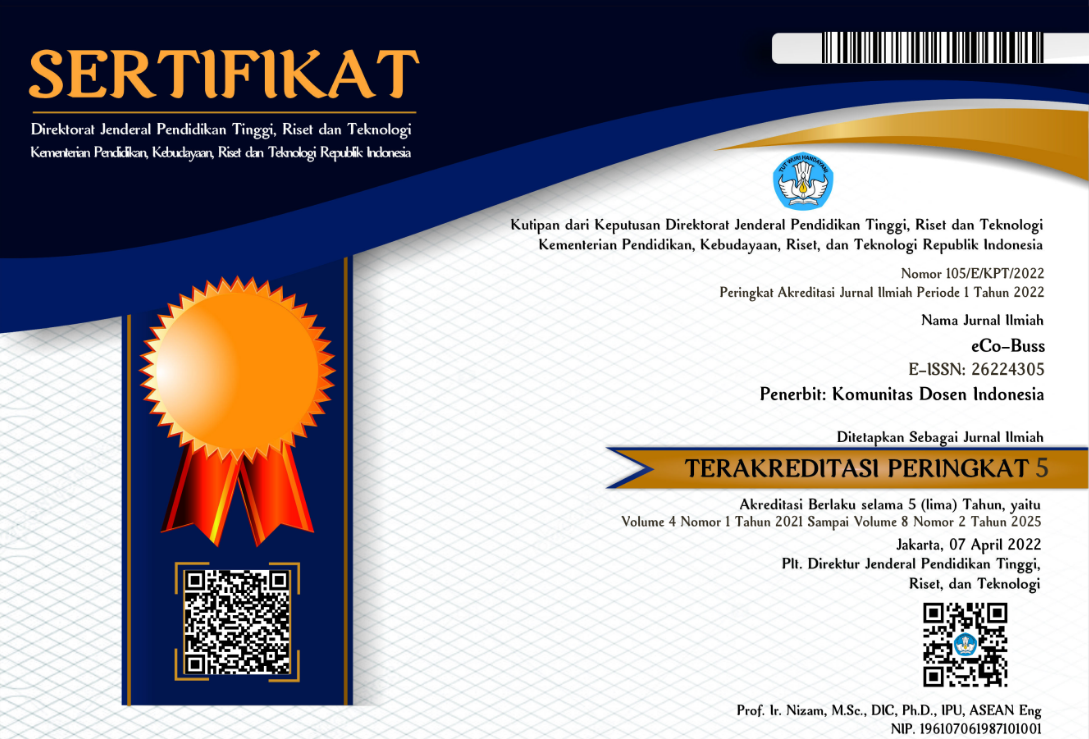The Role of Work Discipline as A Moderate in The Relationship Motivation, Competency and Workload on Employee Performance
DOI:
https://doi.org/10.32877/eb.v7i1.1623
Keywords:
Competency, Employee Performance, Work Discipline, Workload, Work Motivation
Abstract
This study aims to empirically analyze the influence of competence, motivation, and workload on employee performance with work discipline as a moderation variable. This research was conducted at the Kampar Regency Regional Secretariat involving 178 respondents who were selected as a sample. The data analysis technique used is Structural Equation Modeling (SEM) with the help of SmartPLS software. The results of this study show that competence and motivation have a significant influence on work discipline. Work discipline, in turn, has a significant impact on employee performance. In addition, workload is also found to have a significant influence on employee performance, both directly and indirectly through work discipline. In this study, work discipline plays a role as a moderation variable that strengthens the relationship between competence, motivation, and workload and employee performance. These findings highlight the importance of work discipline in the process of improving employee performance, where competence and motivation are the main driving factors that contribute to optimal performance. The practical implications of this study show that organizations, especially management, need to pay attention to the development of employee competencies and motivation as well as effective workload management. This is important to ensure that work discipline can be optimized as a moderation factor in improving employee performance. With the right strategy, organizations can achieve better performance improvements and support the achievement of strategic goals.
Downloads
Downloads
Published
How to Cite
Issue
Section
License

This work is licensed under a Creative Commons Attribution-ShareAlike 4.0 International License.






 DOI :
DOI :
 Abstract views: 85
/
Abstract views: 85
/  PDF downloads: 135
PDF downloads: 135

